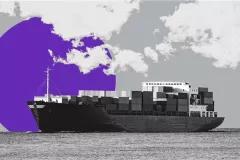As President von der Leyen settles into her second term, the EU is facing huge challenges. At home, concerns over energy security and supply chains linger, and competitiveness dominates the agenda. Internationally, uncertainties around trade and defence are rising amid the return of Trump and looming tariff rows.
All this is set against the escalating climate crisis.
Next week, the European Commission will unveil their answer to these challenges: the Clean Industrial Deal, a flagship initiative meant to transform EU industry, make the EU more competitive, derisk supply chains from China and accelerate the clean tech buildout.
Yet as bold as this vision may be, Europe cannot do it alone. Strategic, value-driven partnerships must lie at the heart of its new approach. Well-designed partnerships can play a dual role: delivering on the EU’s commitment to support partner countries’ clean energy transitions, while strengthening its own geoeconomic security. These partnerships can strengthen access to critical raw materials and contribute to partner countries’ economic development and job creation to avoid extractivist patterns. Collaborating with partners on clean tech can speed up innovation. New avenues for trade deals can open new markets for green industries and keep EU businesses competitive. And this is where clean energy agreements can help secure the EU’s energy supply further.
Clean Trade and Investment Partnerships (CTIPs), as a part of the Competitiveness Compass and Clean Industrial Deal, aim to “secure supplies of raw materials, clean energy and clean tech from across the world”. However, the success of the CTIPs will hinge on thoughtful design and three key considerations.
- First, the EU must learn from past missteps, where partnerships felt too one-sided. Recent stumbles, such as stalled partnerships with India, or confusion around Global Gateway, show the need for better co-design, communication and planning. Partnerships should benefit both sides by sharing knowledge, creating jobs and building local skills. They must also respect the partner country’s needs and fit into broader development plans. The goal should be true teamwork and local ownership, not top-down decisions.
- Second, partner countries need fair and accessible funding that won’t add to their debt. After weak progress at COP29, the EU must follow through on its promises and offer real support. The CTIPs should focus on crowding in private sector investment in clean supply chains through blended finance. Without strong and timely financial backing, partnerships will struggle to succeed. The EU needs to move faster on its offer – too often, the EU is seen as slowed down by bureaucratic hurdles compared to EU competitors like China’s Belt and Road Initiative.
- Third, the EU must coordinate better across its different Directorates-General and with Member States to avoid siloes. Strong leadership on the CTIPs at the highest level is needed to keep efforts focused and prevent overlaps with existing partnerships. Clear communication – both with the EU and with partners – is key to building trust and support. Aligning new initiatives with existing ones, like Critical Raw Materials Partnerships or Team Europe Initiatives will make them more effective and impactful.
While the US Inflation Reduction Act (IRA) and China’s industrial policies focus on domestic gains, the EU can chart a different course – one that blends economic pragmatism with multilateralism. Done right, partnerships can create win-win outcomes.
Now is the time for the EU to step up its global leadership and show that the clean agenda is not just a domestic agenda. It is a win for all.






